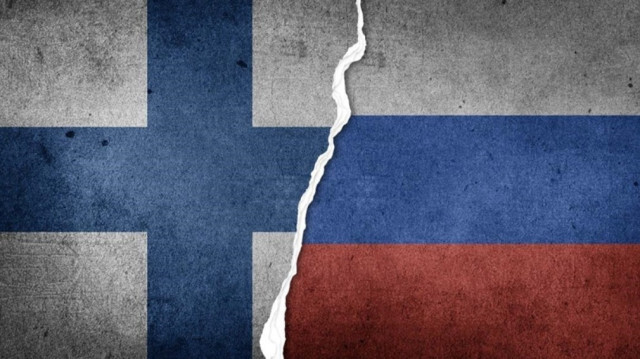
Finland closed its entire 1,340-kilometer (832-mile) border with Russia last week after it accused Moscow of resuming an effort to funnel migrants into the country to cause destabilization.
Finland's decision has prompted concerns among human rights organizations with Amnesty International and the UN warning the complete closure of the land crossing which leads to preventing people from seeking asylum, is contrary to international law.
Amnesty International Finland told Anadolu that the closure "undermines the rights of asylum seekers and increases the risk of serious human rights violations at the border."
Essentially the border closure means that there is no possibility to seek asylum from the eastern side of Finland, which is not in line with the 75-year International Human Rights Agreement that grants everybody the right to asylum.
- Hybrid threats
Finnish authorities accused Moscow last month of carrying out a suspected "hybrid attack" and purposefully assisting undocumented migrants in crossing into the Nordic country. It was an accusation Russia denied.
When facing difficult times, every country has the right to guard its borders and address national security matters. But it should do so while respecting international agreements and human rights, Executive Director of the Finnish Refugee Council, Annu Lehtinen told Anadolu.
This must be maintained even when it is evident "that there is more in play than just individuals seeking asylum," she said.
The message that the Finnish government is trying to get across "is that refugees are not welcome," which is a massive shift in the country's migration policies, legal advisor and spokesperson for Amnesty International Finland, Pargol Miraftabi, told Anadolu.
The interior minister has clearly said: "Refugees should not come to the eastern border" but the fact is that "we do have people seeking asylum, and we have people who have had to leave their homes. And this is not the right way to approach this question, to close all the borders," said Miraftabi.
Following an initial two-week land crossing closure between the two countries last month, the Council of Europe published a letter Dec. 4 expressing concerns "about the rights of refugees, asylum seekers, and migrants" urging Finland to ensure asylum seekers and migrants could continue to seek protection.
"The actions of another state, as reprehensible as they may be, do not negate Finland's obligations under international refugee and human rights law, including as regards non-refoulement, the protection of the right to life, the prohibition of inhuman or degrading treatment, and the prohibition of collective expulsions," the Council of Europe human rights commissioner Dunja Mijatovic said in the letter to Interior Minister Mari Rantanen.
Under international human rights law, the principle of non-refoulement guarantees that no one should be returned to a country where there is a real risk the person would be subjected to persecution, torture, inhuman or degrading treatment or any other human rights violations.
Lehtinen underlined the fact that Finland should take into consideration the vulnerabilities of different people that may not be visible always in border situations.
The Nordic country should "consider those when we are really looking at granting asylum access or not," she added.
Currently, at Amnesty International "we are not aware of any major human rights violations at the Finnish border crossing," said Miraftabi, adding that Finland needs to pay attention to what is also happening elsewhere.
"We can see from other borders that massive human rights violations have occurred. And I'm not saying that these things will definitely happen in Finland but we need to look at what is also happening at other borders. And what is the consequence of closing the border," said Miraftabi.
Asked if Finland closing the entire crossing with Russia is illegal under international law, Miraftabi said: "It is very difficult to see how Finland is fulfilling its international human rights obligation at this current stage."
- Dangerous routes
Since facing a refugee crisis in 2015, the EU is still struggling with how to reform its asylum system at a time when migrant entries are again on the rise.
Reaching an agreement between the EU's 27 member countries has become more difficult with the growing influence of the far right in politics of some member states.
Closing the crossing often means that people need to rely on more dangerous routes to get to safety.
Thousands of migrants and asylum seekers have died while attempting to reach Europe.
According to the Human Rights Watch (HRW), over 25,000 have died in the Mediterranean since 2014.
The countries should ensure safe routes so people do not rely on dangerous journeys to seek asylum and can avoid facing human rights violations when it comes to their right to safety, said Miraftabi.
"There are more people who have had to leave their homes than ever before, currently," and even though governments have the right to determine what happens at their borders, closing all crossing points "is not the answer," she advised.
Miraftabi emphasized that not only Finland, but other countries around the globe, must respect human rights obligations and treat people "humanely."
There is a way to do humane immigration policies "and this is what I would want the Finnish government would do," she said.
Finland became the 31st member of the NATO military alliance in April, ending decades of military non-alignment as a result of Russia's war in Ukraine that began Feb. 24, 2022.













